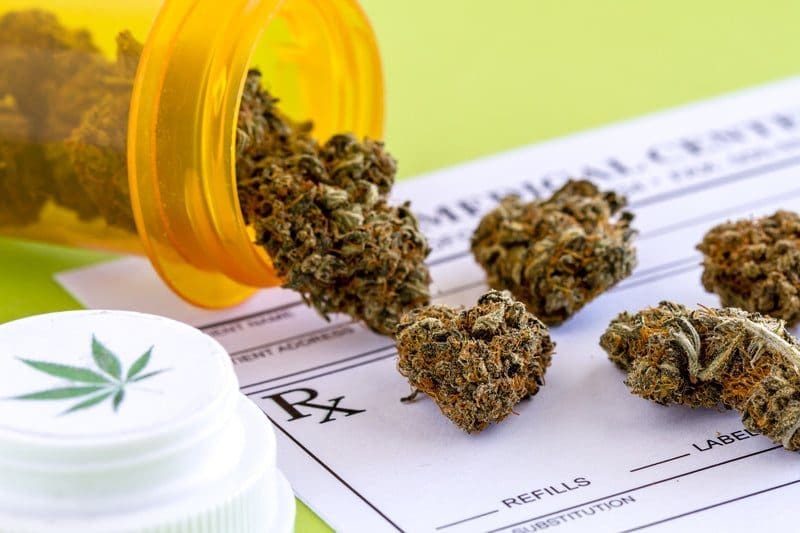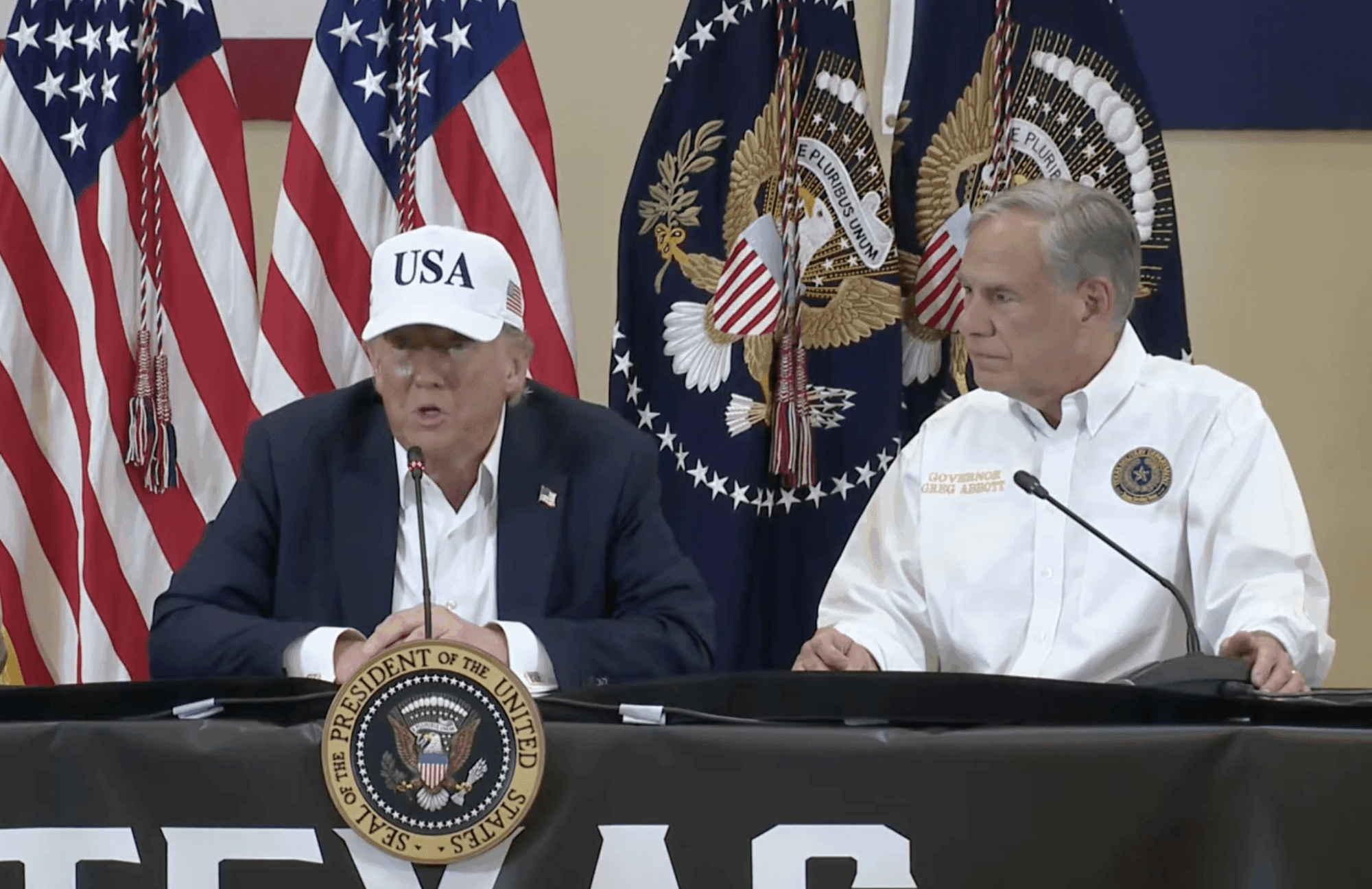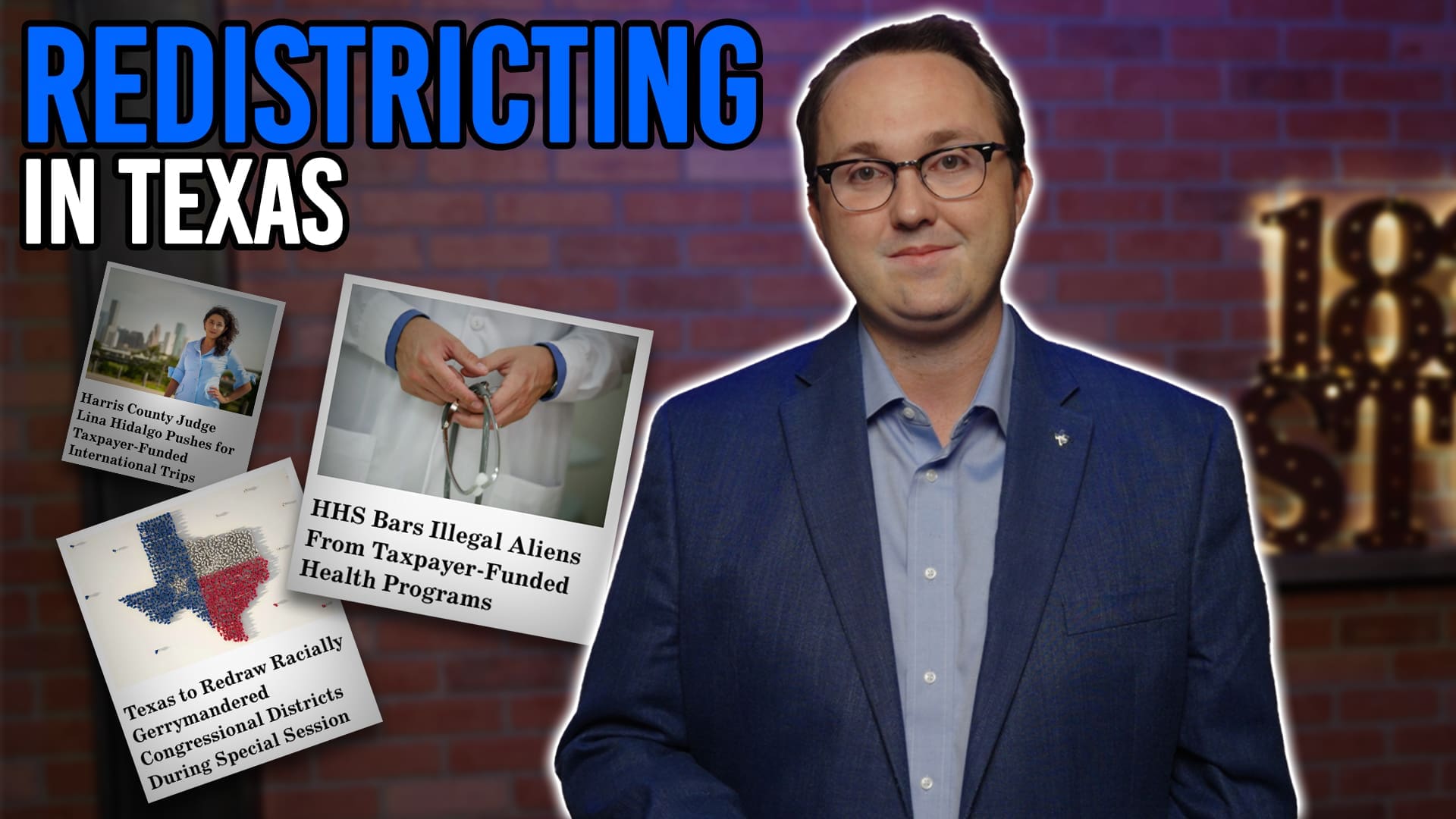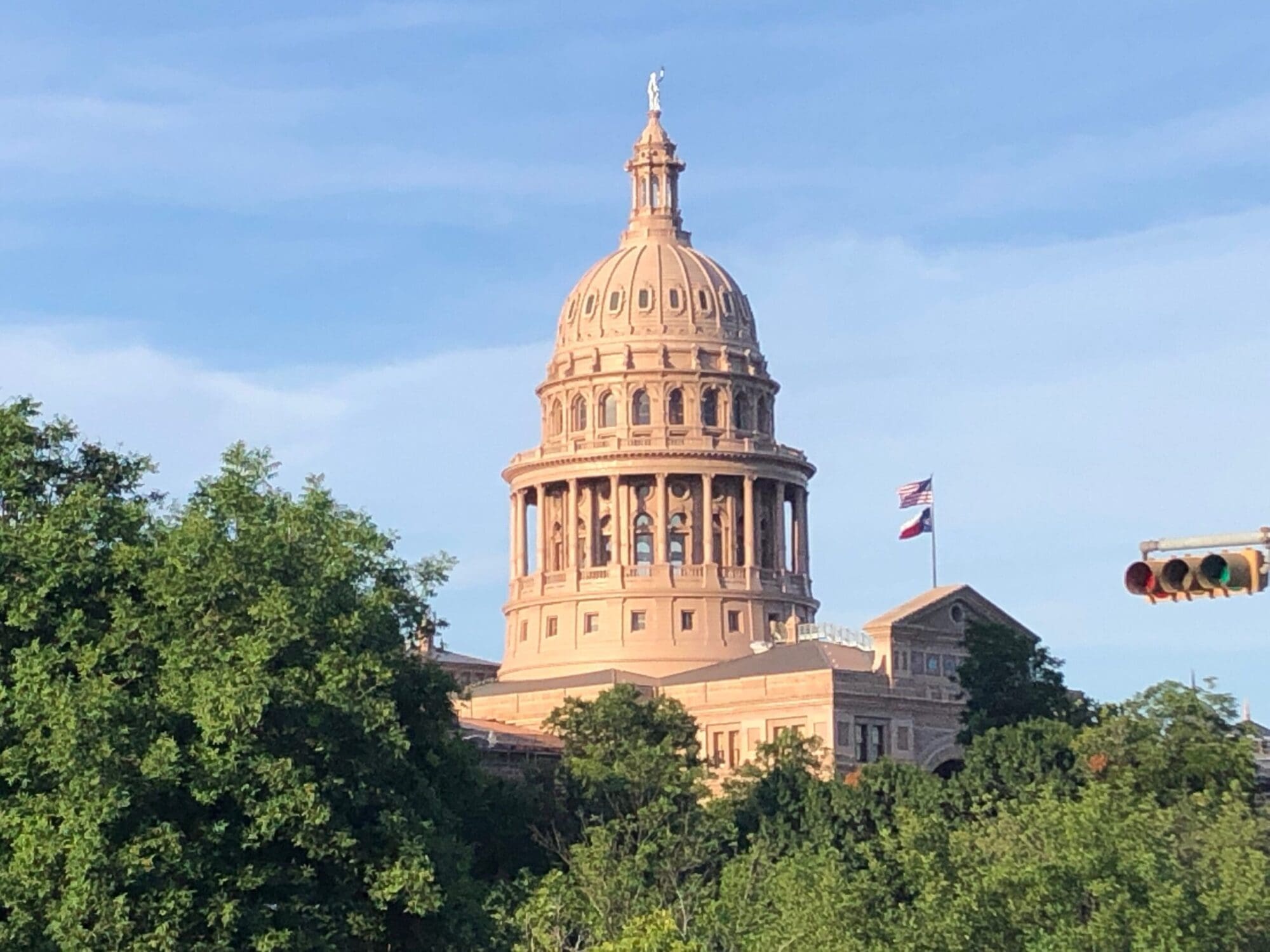In 2015, Texas took its first big step toward legalizing “medical” marijuana. Although it was relatively limited, the Texas Compassionate Use Act was signed into law by Gov. Greg Abbott. The statute created a program allowing doctors to prescribe low-THC cannabis to certain patients suffering from epilepsy. Four years later, the Lone Star State expanded the program to include more qualifying medical conditions.
Texas’ next step might be even bigger.
The 87th Legislative Session may have just started, but with bill filings having begun in November, there have been a plethora of cannabis-related proposals. With the exception of a bill to require TANF (Temporary Assistance for Needy Families) applicants to pass a marijuana drug test, everything filed thus far would loosen the state’s restrictions on the controversial substance. From allowing defendants to claim they thought marijuana was legal hemp to outright legalizing it, the bills point to a cannabis-friendly legislative session. But with strict opposition from Lt. Gov. Dan Patrick, cannabis advocates will need to be strategic about which priorities they focus on, hoping to at least convince him to allow them to be voted on in the Senate.
“Medical” marijuana might be their best bet. But is it a Trojan horse towards full legalization?
While Texans generally favor softening cannabis laws, support among Republican voters is likely pivotal to persuading Patrick. Most Texas Republicans are opposed to fully legalizing the substance, but a plurality of them support “medical” marijuana.
According to a poll by the University of Texas, only 13 percent of GOP Texans believe cannabis should be “legal for any purpose,” 27 percent think it should be “legal in small amounts,” and another 27 percent think it “should not be legal” at all. This leaves 33 percent with the view that it should be allowed for “medical purposes only.”
This raises two important questions: What exactly is “medical” marijuana, and could it open the door to the total legalization only 13 percent of Texas Republicans support?
First, let’s look at the two primary active compounds of marijuana: CBD and THC.
CBD (cannabidiol) is a compound in cannabis that is associated with producing a euphoric feeling. It’s responsible for a momentary calm, relaxing state of mind. Some experts believe it helps treat epilepsy. However, there are still some health concerns regarding CBD. According to a post by Harvard Medical School, “side effects of CBD include nausea, fatigue and irritability,” among others. While hemp (a cousin of marijuana with a high CBD-THC ratio) was recently legalized in the state of Texas, there is also an FDA-approved drug that can be used to treat some patients.
THC (tetrahydrocannabinol) is the psychoactive chemical that produces the “high” from marijuana. While the cannabis of the “Woodstock” generation had relatively moderate levels of THC, modern cannabis has been genetically modified to contain higher levels of the addictive chemical. A known benefit of THC is pain relief. Although many of them might be associated with the plant itself, the CDC claims the negative psychological effects of THC include memory loss, anxiety, paranoia, schizophrenia, and psychosis. There are several synthetic drug products that mimic THC.
While the term might create confusion, “medical” marijuana is not necessarily FDA-approved medication. Instead, it is simply marijuana intended to relieve a medical condition. Mayo Clinic lists its various forms as “oil for vaporizing, pill, topical applications, oral solution, and dried leaves and buds.” A WebMD article puts it bluntly: “It’s basically the same product as recreational marijuana, but it’s taken for medical purposes.”
It’s debatable whether the term “medical marijuana” should even be used. United States Surgeon General Jerome Adams recently made headlines after he criticized the phrase while speaking about the medicinal properties of cannabis.
“And I don’t say ‘medical marijuana’ because there’s no such thing as medical marijuana any more than there’s a such thing as medical poppy, which is the plant from which heroin and opioids are derived. There are medicinal components of marijuana,” said Adams.
In other words, while there are medicinal components that have been isolated from the plant and used to make certain FDA-approved drugs, he suggested marijuana itself shouldn’t be referred to as a medicine.
In an interview, Aubree Adams with anti-legalization organization Citizens for a Safe and Healthy Texas made a sharp accusation.
“ ‘Medical marijuana,’ to me, is a false term. It’s a term [used] to confuse people and to get a sympathy vote,” Adams said.
A sketch by the comedy duo Key & Peele reveals the way some claim “medical” marijuana laws can be abused:
“I’m telling you it’s totally legal. These doctors, they’ll prescribe medical marijuana to anyone, man.”
“What do I tell them I need it for?”
“It doesn’t matter. They want to give you a prescription, it’s how they get paid. Just make something up.”
While the sketch is fictional, some worry that it may not be that far off from reality. Will the proposed bills to expand the Texas Compassionate Use Act make it easier for patients with legitimate conditions to find proper relief, or would it essentially legalize the drug for anyone in Texas as long as they find the right doctor?
Currently, there are a handful of “medical” marijuana bills filed in the Texas Legislature. What would these pieces of legislation do?
There are two identical proposed constitutional amendments to allow for the “possession, cultivation, and sale of cannabis for medical use.” While passing with the needed two-thirds majority in the Texas Senate would be a tall order, some might argue the vague amendments would have little practical difference from full-on legalization. For instance, if a police officer stopped a suspicious truck loaded with 2,000 pounds of cannabis and the driver claimed it was for medicinal purposes, would the officer have to let him go? While the amendment still allows for regulations, how loose could those regulations be?
Even bills that are potentially less drastic raise questions.
Brownsville Democrat State Rep. Alex Dominguez’s HB 43 would allow physicians to prescribe “medical” marijuana using their discretion. The bill strikes out several provisions from state law. While the Texas Compassionate Use Act specified doctors could only prescribe “low-THC” cannabis (<0.5 percent), this bill would replace that with the term “medical.” As written, it would seemingly provide no limit on the amount of the addictive psychoactive compound responsible for the plant’s “high.”
What is the argument behind striking out the limit? Jax Finkel, executive director of pro-legalization group Texas NORML, provided the following explanation.
There are a lot of people who have found great issue with the fact that legislators went with percentages [in the Texas Compassionate Use Act] because that’s not really how you dose out medicine. You usually go by weight in milligrams…I do think it is up to doctors to decide dosing. I know some patients that have severe pain and need higher levels of THC…if we could move to something that was maybe more weight based I think that would be more functional.
While functionality is important, as it stands, the legislation wouldn’t provide any alternative limit on THC, something many Texans might be concerned about.
The bill also eliminates the requirement to have certain debilitating medical conditions. Instead, the text specifies that “‘eligible medical condition’ means any medical condition for which a physician determines that medical cannabis is a medically necessary treatment.” Why such a drastic change? Finkel argued that allowing physicians this level of discretion is important.
“The doctors that are seeing their patients and learning about the medicine are going to be able to make the best decisions possible. So, to me, letting doctors decide who can have access and their dosing is a really common-sense step to make,” said Finkel.
Again, however, some might find it troubling that there seems to be a lack of any limit on qualifying conditions.
Nearly every other “medical” marijuana bill filed in the Texas Legislature contains these two controversial provisions. However, most of them go even further by allowing the substance to be “recommended” instead of prescribed. While many doctors were hesitant to participate in Texas’ limited “medical” marijuana program due to the fact that prescribing it is still illegal under federal law, this loophole would allow them greater legal cover. With that greater legal cover, however, is there also less accountability to properly inform patients?
“It’s a dangerous move, and it’s a move towards the door opening further to full legalization,” said Aubree Adams. “It’s a play on words. Recommending drugs is not appropriate. People need to know the facts and the science.”
From allowing marijuana convicts to work at licensed dispensaries to extending it to “practitioners” and “non-resident cardholders,” bills to expand the Texas Compassionate Use Act seem to drop a variety of restrictions. As previously noted, most Texas Republicans oppose outright legalization. However, if even a couple of these items pass, opponents may be concerned that as long as they can find one willing medical professional, cannabis has practically been legalized in the Lone Star State.
When asked what she found to be the most persuasive argument in favor of expanding the Texas Compassionate Use Act, Finkel says she has seen the medical benefits from cannabis help children be more connected with their loved ones.
“I just look at all of the kids that I know with autism and other disorders here in the state, and I see how much they’ve been helped and how it has affected their family life and being able to be more present with their family,” said Finkel.
Adams says such policies could lead Texas to look more like California.
“Texans are smart, they’re very pro-family, they’re very pro-kids, they have a lot of pride in their communities, and they want their communities to be safe. … They don’t want to turn into California. That’s the main message I get all the time,” Adams explained. “They don’t want to turn into California, and if they keep embracing these types of dangerous policies, they are on the road to be like California.”
If Texas opens the door to “medical” marijuana, could we be letting in a Trojan horse?





